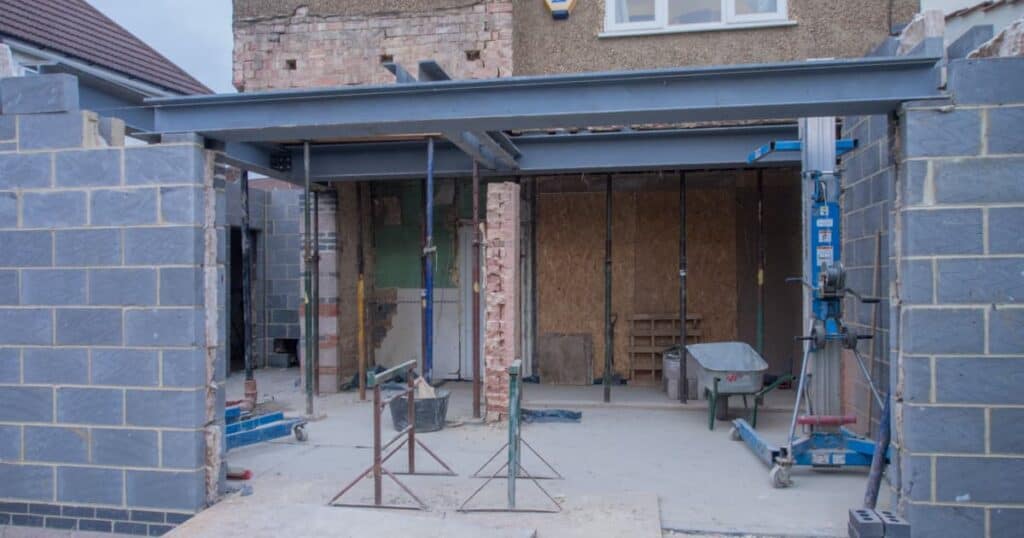
Considering an extension but not sure where to start? This mini guide will tell you everything you need to know about single story extensions, one of the most common amendments that homeowners decide to make!
What are single story extensions?
As far as home extensions go, single story extensions are one of the simpler improvements you can make, they’re also one of the most popular. To be classed as single story, your extension can only be on one floor and must adjoin to your property on one single floor.
Single story extensions require meticulous planning, designing and budgeting – but they can greatly improve the layout of your home and give you that bit of extra space! They’ll also improve the value of your property, which can make them a worthwhile addition.
Designing a single story extension
One of the major steps of your extension project will be to design how the end product is going to look. You can choose an architect to design your extension or you can work alongside an experienced builder and design the layout yourself.
It’s important to consider how an extension will be integrated with the rest of your property before physical work begins. The design of your extension may be limited by planning consent, and the layout of your house will also dictate what you can do in terms of design.
Most commonly, single story extensions are built on the back of a property or around the side. The trick to making it look slick is to create a natural flow from the new extension into the original property. To do this, you’ll want to ensure the floor levels match up, and that the extension has wide enough access. Single story extensions are often designed with sizable glass windows or sliding doors, so that the room can act as a sun trap.
If you are unsure on what will work best, it’s worth speaking with an expert for advice or hiring a professional construction company to design the extension for you. This will ensure your extension is designed to be practical whilst also fitting in with your house style-wise.
Is planning permission required for a single story extension?

Permission being necessary for a single story extension will depend on several factors. You will need planning permission if your extension does any of the following:
- Is taller than 4m
- Extends towards a road
- Is over half the width of the property
- Covers more than half the area of land surrounding the property
- Increases the overall height of the property
- Uses different materials to the rest of the property
- Includes a balcony
- Extends more than 6m from the back of an attached house
- Extends more than 8m from the back of a detached house
Architects and builders should already be aware of these restrictions during the designing stage, however, it’s always worth checking yourself to ensure you aren’t breaking any of the rules. Some single story extensions can be allowed through permitted development (PD) rights, which means you won’t have to apply for full planning permission. However, this will depend on whether the height and footprint meet the PD criteria.
Even if you think you won’t need planning permission, it’s worth checking with the local authorities just for peace of mind. You can also apply for a certificate of lawful development, which may help to save you from future hassle down the line.
Is a party wall agreement needed?
This will likely depend on the relationship that you have with your neighbours. The party wall agreement states that you must tell your neighbours if you want to carry out any building work near the shared property boundary. If you can establish a good relationship with your neighbours and explain your plans, you may be able to convince them to sign a waiver form for the party wall agreement.
Alternatively, you’ll need to arrange a party wall agreement using surveyors. You and your neighbours can use the same surveyor if they agree to it, however, your neighbours will be entitled to hire their own surveyor, which you’ll have to finance.
If a single story extension sounds like the ideal home improvement for you, make sure you do as much research as possible and seek expert advice if you are unsure about anything.

